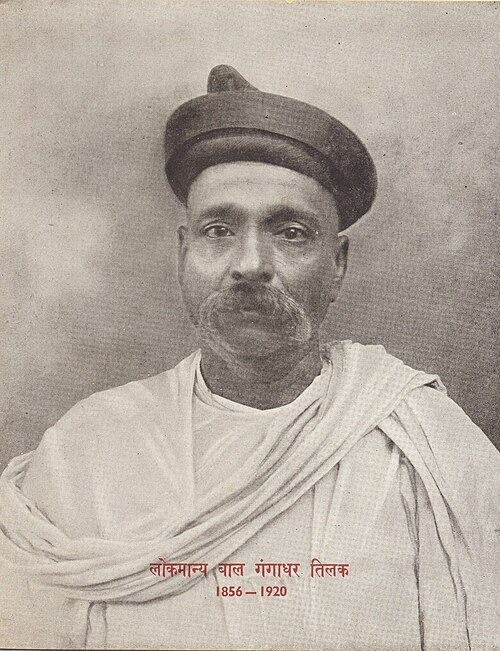Lokmanya Tilak: Remembering the Lion Who Roared for Swaraj
By Amit Kumar

Today marks the 105th death anniversary of Lokmanya Bal Gangadhar Tilak (1856–1920), one of
the tallest figures of India’s freedom movement, a visionary who roared, “Swaraj is my birthright,
and I shall have it!” and lit the fire of self-rule in the hearts of millions.
Known as the “Father of Indian Unrest” by the British, Tilak was not merely a freedom fighter, he
was a fierce nationalist, educationist, and journalist who changed the political discourse of colonial
India. His relentless pursuit of Swaraj through the power of words, pen, and public mobilization
earned him the title “Lokmanya”, accepted by the people as their leader.
Tilak’s legacy began in education. In 1880, he co-founded the New English School and later the
Deccan Education Society and Fergusson College, driven by a vision to create a generation of
Indians deeply rooted in their culture and nationalism. But it was through his fiery newspapers
Kesari (Marathi) and The Mahratta (English) that he truly became the voice of the masses, sharply
criticizing British policies and invoking historical pride.
He turned cultural celebrations like Ganeshotsav and Shiv Jayanti into platforms for mass
mobilization, cleverly blending patriotism with religion to reach ordinary citizens. His call to
boycott foreign goods under the Swadeshi Movement after the Partition of Bengal laid the
foundation for economic nationalism.
Tilak’s uncompromising stand often clashed with moderates in the Congress, and he was
imprisoned multiple times for sedition. His six-year incarceration in Mandalay became a period of
intellectual reflection, during which he wrote Gita Rahasya, a seminal work interpreting the
Bhagavad Gita as a call to action.
He was instrumental in the formation of the All India Home Rule League and later helped bridge
the gap between moderates and extremists through the 1916 Lucknow Pact.
As we remember Bal Gangadhar Tilak today, we honour not just a revolutionary but a thinker who
shaped India’s national consciousness. His words echo even today: “If we trace the history of
nations, we shall find that it is character that decides the fate of nations, and not the brain
